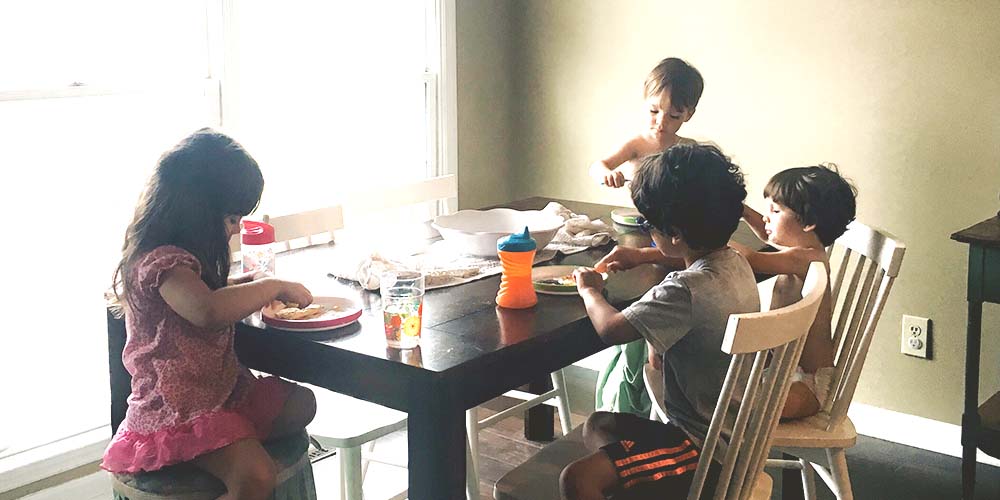Is it just me or is mealtime the archnemesis of motherhood? “I don’t like that, Mommy! Yuck, yuck, yucky!” My two-year-old daughter yelled these words across the table as she shoved her plate away. It was 6 p.m. on a Tuesday, and the dreaded dinnertime negotiations had commenced. I regrettably took a chance on cooking something other than dinosaur-shaped chicken nuggets and Kraft mac-n-cheese. The baby who once ate anything we set in front of her was no more. A toddler version of that same baby has taken her place, and this toddler has fierce opinions about which foods she will and will not eat. It seems like toddler mealtime tantrums are par for the course now.
It wasn’t until I was at my local MOPS (Moms of Pre-Schoolers) meeting earlier this month that I realized I have been approaching mealtimes with my toddler all wrong. The guest speaker that day spoke on the struggles of mealtime with kids. One thing in particular hit home for me: the power of my words at mealtime. I was unintentionally feeding into my daughter’s undesirable eating habits (pun intended) because I hadn’t realized how my comments at the table were shaping her attitude about food—my words started her toddler mealtime tantrums. But I also learned 3 things to say to stop them.
1. “You’re still learning to like that food. Maybe it will be different this time!”
Introducing new foods to toddlers is always a gamble. And it’s not even a matter of whether they’ll like the new food; it’s whether we can actually get them to try it. When your child refuses to try something and insists that he or she doesn’t like it, try using this strategy. Avoid saying things like “you’re so picky” or “Why don’t you ever try anything new?” Saying these things to your toddler (or even to others while your toddler is around) may cause your toddler to believe these things and can actually reinforce picky eating and refusal to try new foods.
2. “Food is fuel for our bodies. Healthy fuel is best!”
Instead of pointing out “good foods” and “bad foods” to our kids, we should focus on what different kinds of foods supply to our bodies. Kids typically associate good and bad with praise and shame. If we are constantly labeling foods as “good” and “bad,” they may grow up to have feelings of shame whenever they eat a “bad” food. The best way to avoid this is by separating feelings and food as best we can. Try talking to your kids about what different foods do for our bodies and how some foods do it better than others.
Try talking to your kids about what different foods do for our bodies and how some foods do it better than others. Click To Tweet3. “Listen to your body. Does your tummy feel full?”
“Making a happy plate” was a thing in my house growing up. Basically, “making a happy plate” meant we ate all the food on our plates at mealtime. Eating all the food we were served was a requirement. Although my parents had good intentions, I now know this isn’t how it should be. Should we encourage our kids to eat? Of course. Should we force them to eat every last bite? No.
Instead of the typical “take one more bite” negotiations, try helping your child listen to his or her body. If a child says, “I’m finished eating,” but still has food in front of him or her, ask, “Do you feel hungry or does your tummy feel full now?” Try to describe what “full” feels like. If your kids insist they’re full, allow them to make that decision for themselves. You can always save the plate in case they change their minds in an hour.
What are some mealtime words you use or your parents used with you that are probably best to avoid?










